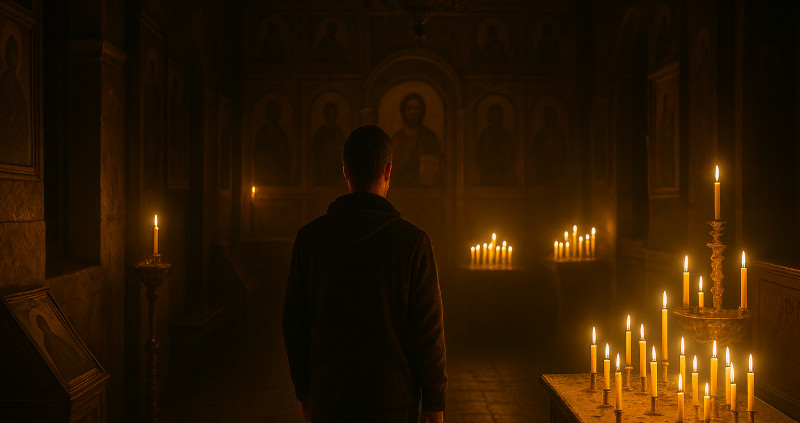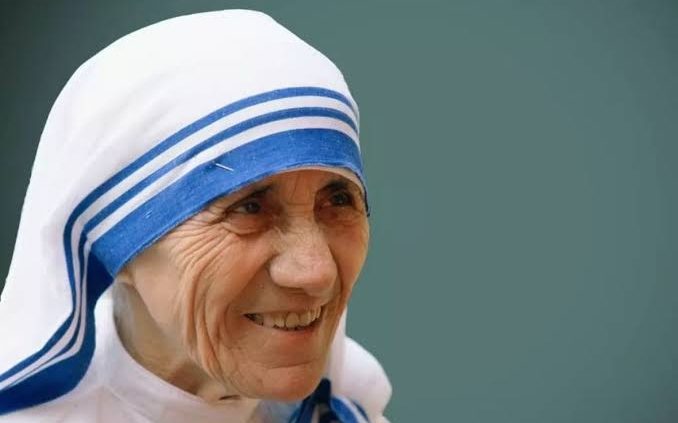Religion in the Age of Information
Rediscovering the Role of Religion in Civil Society

Listen to this article.
When I first launched Project Open Democracy, I didn’t expect to take a detour into religion—let alone rediscover my Orthodox Christian roots or rekindle my faith. But that’s precisely what happened. What I once let slip quietly out of my life returned to me with new meaning, revealing itself as an incredible gift I had never truly lost.
This journey began with a deceptively simple question—one rarely asked, but now urgent in our time of disillusionment:
What is the cause of human progress?
How did we go from cowering in caves, afraid of everything, to walking on the moon and reaching for the stars?
The answer is both simple and profound: cooperation based on trust.
Cooperation is what allowed us to form clans, villages, towns, nations, and now a globally interconnected world. And trust is what makes cooperation possible. But trust doesn’t arise from nowhere—it depends on shared rules of behavior, passed down and internalized across generations.
Over time, those rules became codified into moral systems. They distinguished between virtues—love, honesty, kindness, compassion, generosity—and vices—hate, anger, dishonesty, jealousy, greed. The former foster trust and cooperation; the latter destroy it.
The challenge for our ancestors was not just to understand this, but to transmit it. How do you teach a child to share, to forgive, to sacrifice self-interest for the common good—especially when the rewards aren’t immediate or obvious?
Enter religion.
From a secular viewpoint, it’s easy to see why ancient societies linked morality to the idea of God. It was far more effective to say, “God commands it,” than to try to explain delayed gratification or the abstract benefits of long-term social cohesion. The concepts of divine judgment and eternal reward became powerful motivators. And the idea that we are God’s chosen, His children, gave people a reason to live up to a higher standard.
The sociologist Peter Berger once wrote of the dual role of religion in society: it performs both “world-maintaining” and “world-shaking” functions. Religion maintains the social order by reinforcing values, norms, and duties that make peaceful cooperation possible. But it also shakes the world—challenging injustice, resisting tyranny, and calling people to higher ideals. It preserves and it transforms. That paradox is at the heart of why religion has survived for millennia.
The Founders of the United States understood this well. They believed that a democracy—with less top-down control and greater freedom—required a strong moral foundation. As John Adams put it, “Our Constitution was made only for a moral and religious people. It is wholly inadequate to the government of any other.” The early leaders of America didn’t see religion as a threat to democracy but as its indispensable support. They counted on the church not to dominate government, but to teach and equip citizens to act responsibly and govern themselves.
Whether you interpret this civilizational process as evolutionary or divine—or some mix of both—the result is undeniable: these moral teachings have helped humanity flourish.
From this perspective, even the Ten Commandments take on new meaning—not just as religious laws, but as a moral blueprint for civil society:
The Ten Commandments, Reinterpreted for Civil Society
- You shall have no other gods before Me
Affirms a single truth that unites society: the sanctity of mutual cooperation. - You shall not make a graven image
Truth cannot be reduced to a symbol or idol; it must be lived, not worshipped externally. - You shall not take the name of the Lord in vain
This truth is sacred. To treat it lightly is to undermine what makes us fully human. - Remember the Sabbath and keep it holy
Pause. Reflect. Measure your life against truth—not productivity or consumption. - Honor your father and mother
Family is the first teacher. Parents hold the sacred duty to pass down moral knowledge. - You shall not murder
The gravest violation of mutual aid: to destroy another life. - You shall not commit adultery
Protects the sacred union of marriage and the family as society’s moral cornerstone. - You shall not steal
Cooperation collapses where theft and exploitation thrive. - You shall not bear false witness
Truth-telling is essential. Lies, gossip, and slander poison trust. - You shall not covet
Attitude matters. Jealousy corrodes the soul and erodes cooperation.
Even Christ’s Beatitudes and most biblical teachings on human behavior can be understood this way: as guides to sustaining a moral culture rooted in trust.
As someone who had drifted from the church, this realization initially reinforced my detachment. It seemed to confirm that religion was merely a vehicle for moral education—valuable, but not necessarily divine. I found unexpected affirmation in Philip Yancey’s Disappointment with God, which chronicled the spiritual doubts of a theology student named Richard. His study of the Book of Job—and his own personal suffering—led him to lose faith. Yancey tried to offer consolation to others facing similar crises.
But like Richard, I found myself unconvinced and unconsoled. Something still felt missing. Something deeper.
Then I encountered a passage in 1 Corinthians 13:12:
“For now we see through a glass darkly; but then face to face: now I know in part; but then shall I know even as also I am known.”
That verse haunted me. It hinted at a truth that couldn’t be fully grasped through intellect alone.
It was then that I recognized what had been there all along: the gift of peace—the Comforter spoken of in John 15:26.
This peace is not reserved for saints or mystics. It’s available to anyone who lives a moral life. Perhaps, from a secular angle, it’s a neurochemical response that reinforces positive behavior. But for the believer, it’s the clearest evidence of God’s presence.
Either way, it produces the same result: greater trust, greater cooperation—a better world. It is the convergence point of the secular and the sacred.
For me, this realization was both joyful and humbling. Joyful, because once I acknowledged this peace within me, it filled me like a warm light. Humbling, because I saw how easy it is to miss this treasure while chasing spectacle, miracles, or worldly success.

Mother Teresa
This is the peace beautifully expressed by Mother Teresa in her interview with Dan Rather. When he asked, "When you praying to God—what do you say?" she replied, “Oh, I’m not saying anything. I’m just listening.” When he followed up, “Well, what is God saying to you?” she answered, “Oh, He’s not saying anything. He’s just listening.” In that mutual silence is a depth of communion that words often fail to reach—a stillness where peace resides.
This is the peace that Job discovered—not through answers, but through endurance. This is the peace I found in my own search for meaning amid suffering in an age of abundance and confusion.
And this is the peace I believe even people like Richard can rediscover—simply by acknowledging it, as I did.
This peace is the beating heart of the Freedom Declaration for Peace—offered to believers and non-believers alike, as the foundation for a new civilization.
Humanity has come full circle. We return home, not to superstition, but to wisdom—seen now with new eyes. To quote George Moore:
"A man travels the world over in search of what he needs and returns home to find it."
The Freedom Declaration for Peace is our coming home.


